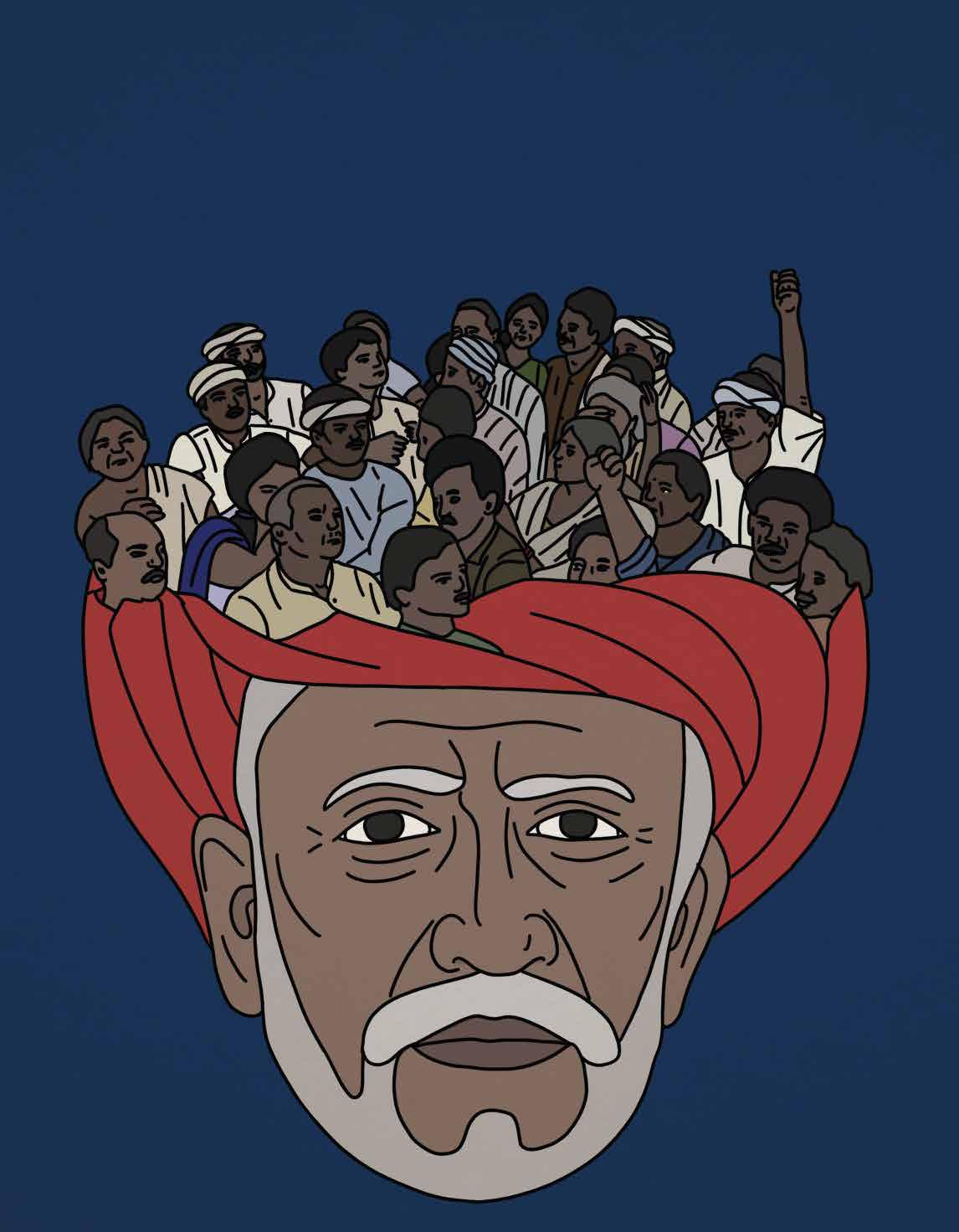TO THE PRESSES: JOTIRAO PHULE AND THE HISTORY OF MARATHI PRINT CULTURE

This is followed by a preface written in English, which was intended for the colonial authorities and written in the formal prose style already customary in English but not yet in Marathi. He gestures to the mythical lineage of the Brahmin community and the spiritual basis of their authority over non-Brahmins but interprets these myths in the context of new developments in history and anthropology, as well as early findings on Indo-European migration into India. He also describes this retelling of the traditional Puranic narrative as "the history of Brahmin domination in India." Then, quoting from the Manusmriti, he describes how Brahmins perpetuated caste by suppressing non-Brahmins and extracting their labour. The preface ends with a petition to the colonial authorities, who, Phule hopes, "will ere long see the error of their ways, trust less to writers or men who look through high class spectacles and take the glory into their own hands of emancipating my Sudra brethren from the trammels of bondage which the Brahmins have woven round them like the coils of a serpent."
A Marathi introduction follows this English preface. As the text switches between languages, it retains its prose form but now addresses a non-Brahmin Marathi readership instead. Continuing in the same vein as before, Phule writes of how Brahmins tricked non-Brahmins into serving them while retaining control over their resources in a spiritual and secular sense. He then writes of developments in the West, where slavery was abolished.
Bu hikaye The Caravan dergisinin October 2022 sayısından alınmıştır.
Start your 7-day Magzter GOLD free trial to access thousands of curated premium stories, and 9,500+ magazines and newspapers.
Already a subscriber ? Giriş Yap
Bu hikaye The Caravan dergisinin October 2022 sayısından alınmıştır.
Start your 7-day Magzter GOLD free trial to access thousands of curated premium stories, and 9,500+ magazines and newspapers.
Already a subscriber? Giriş Yap

Adani's Millions in Mauritius
The ED and CBI were investigating AgustaWestland kickbacks. They found Adani’s network.

BREATHING SPACE
STUDENTS PROTEST SAVE THE UNIVERSITY ΤΟ OF HYDERABAD'S LAND AND IDEALS

Trojan Horse
The BJP's alliance with the AIADMK masks its long game for Tamil Nadu / Politics

OUT Caste in the campus novel OF SYLLABUS
THE CAMPUS NOVEL HAS CAUGHT UP and discovered caste, now a box to be dutifully ticked.

Documenting riverine communities amid Panama’s greatest ever drought where water remembers
WHEN JENENÉ, our portrait of the Chagres River, was being published, in 2023, Panama experienced its worst drought in over a century. My collaborator, Andrea Lino, and I were aware that the water shortage was becoming increasingly acute, due to climate change, but had no idea this drought would occur so soon after or be so severe. While local communities have borne the brunt, the impact has been felt across the world.

Kunal Kamra: "I'm okay without solidarity"
How to make jokes in the face of state repression

KARNATAKA SOCIAL WELFARE MINISTRY REDEFINING WELFARE
The Government of Karnataka is paving the way for positive change, ensuring that welfare programs reach those who need them most, creating a future of equality and empowerment. Under the visionary leadership of Karnataka's Social Welfare Minister Dr. H C Mahadevappa, transformative policies are driving inclusive growth, justice, empowering SC/ST communities, and shaping a future where every citizen thrives.

Karnataka's Model of Development
Inclusive Growth, Social Justice, and a Vision for the Future

The Adivasi Should Not Dance
Assam's grand displays of culture ignore the issues of indigenous communities /Communities

Out of Place
In November 2022, a confrontation over podu—shifting cultivation practised on forest land—between forest officials and Gutti Koya Adivasis in Telangana’s Bhadradri Kothagudem district ended with the death of Chalamala Srinivas Rao, a forest range officer.
